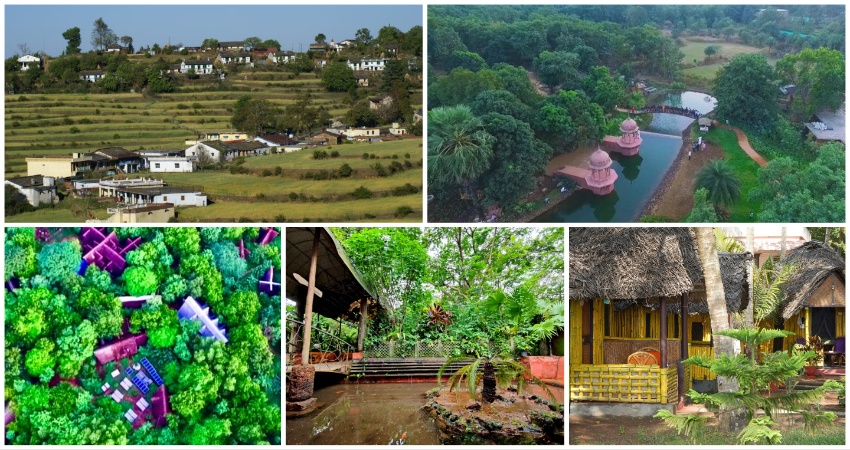In today’s world, where more and more people are focused on living sustainably, India’s eco-villages have become much more than just experimental projects. They are vibrant, real-life destinations that offer a unique, offbeat experience for travelers who want to get closer to nature. These villages are truly redefining what tourism can be, embracing zero-waste lifestyles, organic farming, traditional mud houses, and solar power, all while proudly showcasing Indian culture, ecology, and the wisdom of rural life.
If you’re an eco-enthusiast, a digital nomad, or simply someone from the city looking to take a break from screens and stress, you’ll be happy to know that 2025 is bringing an expanding list of eco-villages where you can actually stay. This guide takes a closer look at some of the most incredible and lesser-known eco-villages across India, chosen specifically for their genuine authenticity, strong commitment to sustainability, and rich cultural value.
Why Eco-Villages Matter in 2025
As worries about climate change grow, more people feel overwhelmed by city life, and with the UN’s Sustainable Development Goals guiding us globally, eco-villages are looking like more than just a nice getaway—they’re presenting a real way to live in a regenerative way.
The Global Ecovillage Network (GEN) reported in 2024 that India is among the top five countries leading grassroots eco-projects. The report also noted a 30% jump in tourism interest, especially from younger Indian travelers under 35. This trend suggests that more and more people are becoming curious about living responsibly.
Top Eco-Villages in India You Can Actually Stay In
1. Sadhana Forest, Auroville (Tamil Nadu)

Focus: Reforestation, Veganism, Water Conservation
Type: Volunteer-Based Stay
Sadhana Forest is all about reforestation, veganism, and water conservation, and it’s a place that truly feels like a lifestyle transformation, not just somewhere to stay. Located just outside Auroville, this welcoming community invites visitors to dive into sustainable living, plant trees, and embrace a raw vegan diet. Expect simple accommodations: think bamboo huts, composting toilets, and everyone sharing kitchen duties.
What Makes It Best
- Hailed by GEN and various NGOs for its work in water conservation.
- It hosts educational initiatives focused on afforestation and permaculture.
- With over two decades of documented environmental impact.
Visitor Tip: There isn’t a set price. It operates on a gift economy model. Volunteers offer their time and skills, and in return, they receive meals and a place to stay.
2. Govardhan Eco Village, Palghar (Maharashtra)
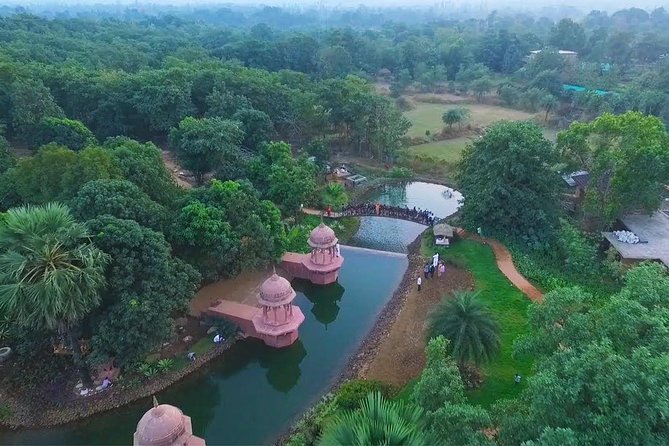
Focus: Organic Farming, Yoga, Vedic Lifestyle
Type: Spiritual-Eco Retreat
Established by ISKCON back in 2003, this acclaimed eco-village near Mumbai really stands out as a brilliant blend of ancient Vedic principles and contemporary eco-friendly design. Guests can get involved in yoga, help out on the farm, or attend talks about spirituality and sustainable living.
Awards & Recognition:
- UNWTO Award for Excellence in Sustainable Tourism (2017)
- Water Stewardship Award from CII (2020)
Your Stay: You can pick between eco-cottages or dorm rooms. Your experience includes organic meals, guided tours, and the chance to join daily yoga and meditation sessions.
3. Vrikshalaya, Almora (Uttarakhand)
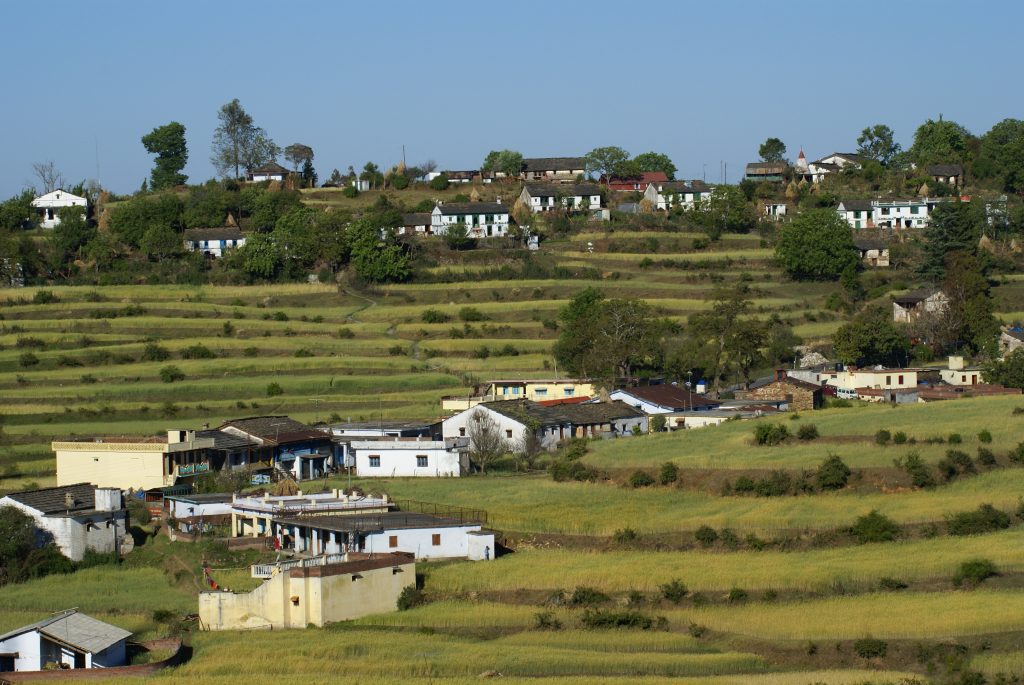
Focus: Himalayan Agroforestry, Women-Led Sustainability
Type: Farmstay and Homestay Model
Nestled in the Kumaon region, Vrikshalaya is a women-led eco-village dedicated to safeguarding Himalayan plants and traditional seeds. Visitors can roll up their sleeves and try
their hand at terraced farming, explore the woods on guided walks, and delve into the world of local plant-based remedies.
Impact Factor:
- Gives a boost to over 50 rural women through eco-friendly business ventures.
- Teams up with Navdanya to protect native seed varieties.
Best Time to Visit: April to June or September to November.
4. Odysseia, Mandrem (Goa)
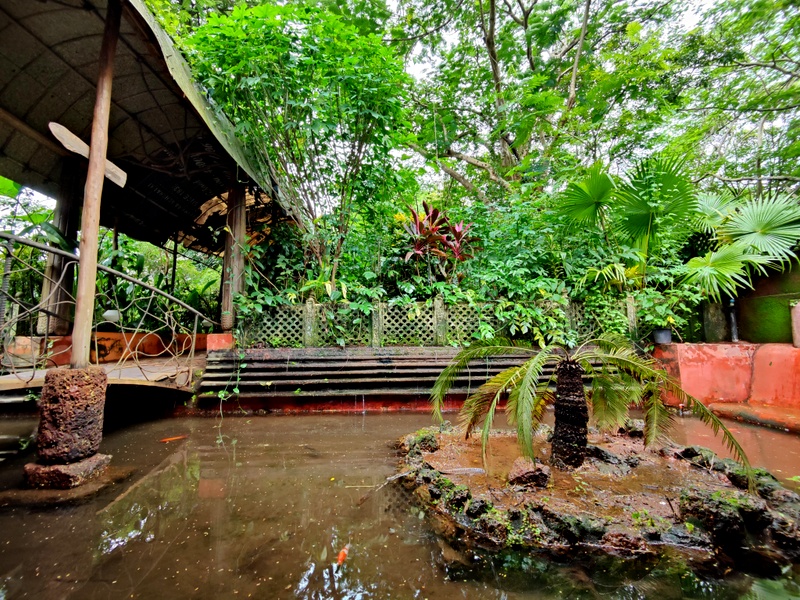
Focus: Community Art, Permaculture, Renewable Energy
Type: Intentional Community
Goa is more than just beaches and nightlife, you know. If you’re looking for something different, Odysseia is a real find. It’s a place all about slowing down, built around permaculture, using natural mud materials, and connecting with different cultures. You can stay in cool earthbag domes, use shared kitchens that run on solar power, and join workshops for things like composting, pottery, and learning about climate issues.
Sustainability Highlights:
- They’re really committed to the environment, banning single-use plastics entirely.
- They even won the Eco-Conscious Design Award from Goa’s Tourism Board back in 2023.
- Plus, the whole place is completely off the grid.
Ideal For: Creatives, solo travelers, and remote workers.
5. Bamboo Village, Wayanad (Kerala)
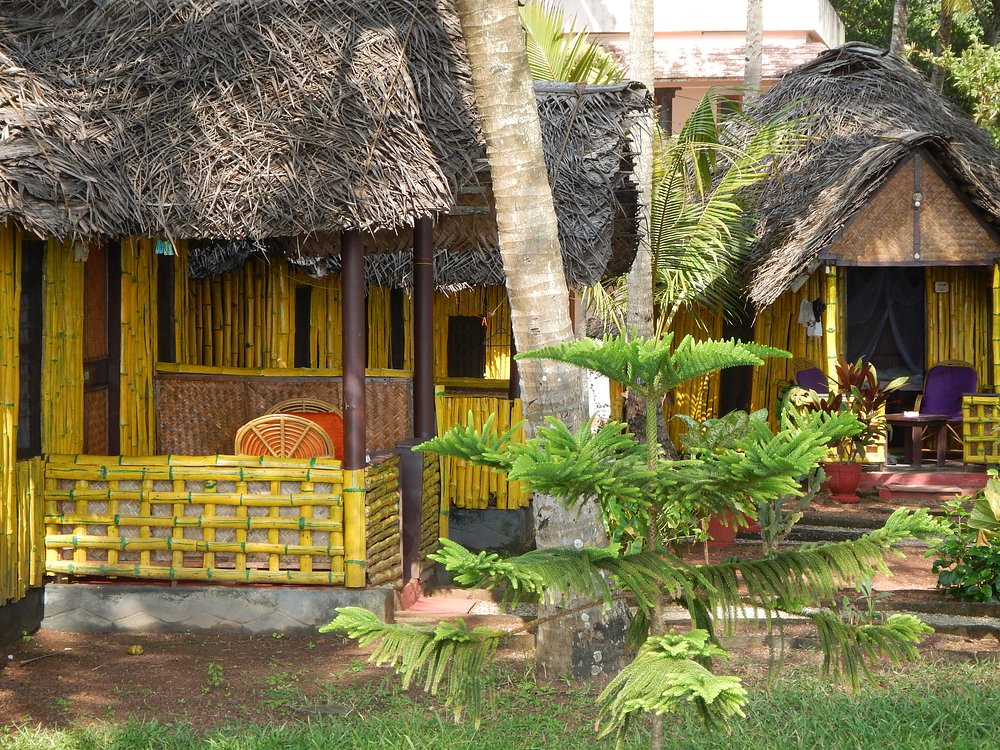
Focus: Tribal Empowerment, Bamboo Architecture
Type: Rural Tourism + Cultural Stay
Managed by Kerala’s Department of Tourism in partnership with local tribal cooperatives, Bamboo Village provides a wonderful chance to dive into tribal traditions, bamboo
craftsmanship, and eco-friendly tourism. Visitors can stay in charming bamboo huts, savor local dishes, and even get hands-on learning how to make furniture.
Socio-Economic Impact:
- The village directly supports more than 100 tribal families.
- It also trains young people in sustainable tourism and the bamboo industry.
Eco-Credentials:
- The site features rainwater harvesting systems.
- It utilizes natural methods for treating wastewater.
Responsible Travel Tips for Visiting Eco-Villages
- Pack smart and light for your trip: leave the plastics behind, bring biodegradable soaps, and choose clothes that are kind to the environment.
- Get involved, not just watch: Whether it’s helping with composting or joining in feeding the cows, dive into the daily life of the community.
- Be mindful of local customs: Remember, you’re visiting a real community, not a resort. Dress respectfully, always ask before you take photos, and be considerate of quiet times.
- Make ethical travel choices: Always book your stay directly with the village or through trusted eco-travel websites.
The Future: Eco-Tourism As Regenerative Travel
These days, eco-tourism in India is about so much more than just finding a place near the jungle or making sure they use LED lights. It’s really about building community, living in harmony with nature, and making a positive impact wherever we go. When you choose to stay at one of these eco-villages in 2025, you’re not just cutting down your carbon footprint; you’re also supporting local communities from the ground up, helping bring back traditional knowledge, and setting a fresh example for tourism in India.
The Ministry of Tourism is already backing this idea, including “Green Circuits” in their Swadesh Darshan 2.0 Scheme. As India moves towards a more sustainable future, these eco-villages are becoming true havens where cultural wisdom and ecological balance really shine through.
So, next time you’re thinking about a trip away, why not consider one of India’s vibrant eco-villages? It just might change the way you see the world, and your own part in it.

